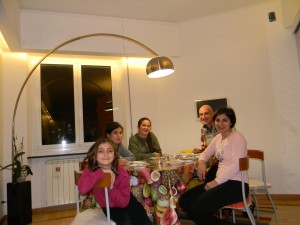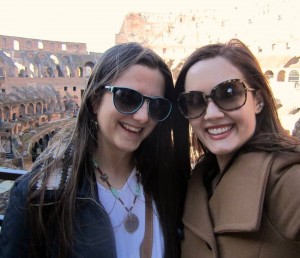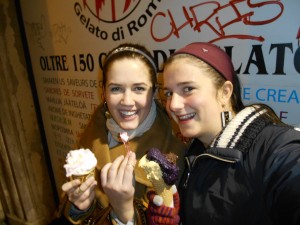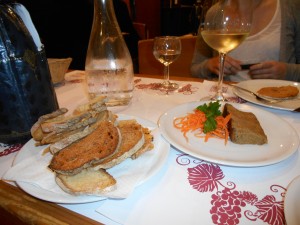When I was younger, gracias was probably the first word in Spanish I ever learned. I did not know then that I would grow up to pursue the goal of speaking fluently and understanding this language, or that this goal would take me ultimately on a five week trip through Peru before coming to live for five months in Chile. This is what I’ve found myself doing, and now I as I am just starting my time in Valparaíso, Chile, I feel compelled to look back at the past few weeks.
One of the kind and welcoming people I met was a man named Cesar, who jointly owns a tiny farm and ecotourism spot in the jungle of Peru, near the city of Tarapoto. He grew up outside of Tarapoto, and described to me how when he was going to university, coming home for the weekends or for vacations was always like medicine for him. I could easily understand – after having spent a few days at Wayra Sacha, I felt physically and mentally healed from the malaise brought on by the bustling city of Lima. Cesar told me that one’s entropy rises in the city, causing stress and internal disorder, but that to keep my entropy low, I would simply have to remember to give thanks. When I ate a meal, I would have to remember the earth that it was grown in, the people who had tended and harvested it, just like I had been tending to the crops. I would have to give thanks.
Now, after a trip that was nothing like I planned but held more meaning for me than I ever imagined, I have much more to give thanks for than the food I have eaten (although it’s been some seriously good eating). I have to give thanks to my sister Jessie, for telling me of the cheap ticket prices and showing me around Lima, explaining the taxis and the food and the good and bad neighborhoods, and to her husband and kids and the whole family there for giving me a great couple of weeks where the days were relaxed yet full. I want to give thanks as well to the chefs who I’ll never see but who never let me down; to the bus drivers who had patience with a couple of lost gringas with no idea how much to pay or where to board; to the city of Lima for letting me join in its colorful and chaotic birthday celebration.
I thank the planes that make life easier and shorten a sixteen hour journey into two hours. I thank the long distance buses and minivans that save money and let you see more, of the life of ordinary people, of the out-of-the-way unvisited towns consisting of stray dogs and houses painted with political slogans perched on sides of mountains. They let you experience more, when you’re stranded far from your destination in a little town and you realize that the old woman you’re asking for directions is a Quechua speaker who knows less Spanish than you do. They come and rescue you, when you’ve walked down from Machu Picchu and along a railroad track for two hours only to find that the bridge is out and there are people occupying the train trying to get to Cuzco, when you follow these strikers off the train and down a road that leads to the place where the bridge fell, a rushing river now passable via log, and the train has pulled away so there is not really any choice but to cross, and at the other end to find a driver with open seats who will drive you over curving guardrail-less high mountain roads and tell you about how his parents named him Ronald after Ronald Reagan, and how his schooling to become a guide is going, and how when someone yawns the joke is to ask “from hunger or from sleepiness?”
I have to thank our hosts in Cuzco, for having their doors open at 1 a.m. when Ronald deposited us in a plaza and we stumbled up the long, long stairs and proceeded to hang out listening to reggae and classic rock for several more hours. We passed some good times in that apartment in San Blas, and that was another opportunity to see another side of a famously touristy city and its surroundings. Just a hint: if you find yourself in Peru, go to the market, and get the juice and/or the daily menu. It’s always good value and most of the time good conversation with the woman who’s serving your soup and your tripe-with-potatoes.
So thank you to Peru for lending my travel buddy Maria and I your buses, your hostel rooms, your ancient ruins and gorgeous landscapes, the brightness of your beaches and the intensity of your cities. And thank you to Cesar for reminding me to give thanks, which is something that I will think of often as I head toward the new challenges of living, working, and playing in the cities of Valparaíso and Viña del Mar.






